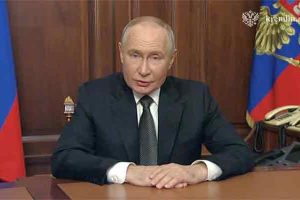
As mask mandates and social distancing requirements lift around the world, North Korea remains one of two countries that have not administered any coronavirus vaccines.
As mask mandates and social distancing requirements lift around the world, North Korea remains one of two countries that have not administered any coronavirus vaccines, with no sign of how it can ever begin to reopen despite a brewing humanitarian crisis for its people.
The vaccines that were allocated for North Korea through a United Nations-backed global vaccination effort are no longer available, officials said this month, after Pyongyang repeatedly rejected the initiative’s offers of millions of doses.
North Korea, already one of the most closed societies in the world, remains in a strict pandemic lockdown and has shuttered its borders except to a minimal level of trade with China, with grave implications for the health and food security of its population.
No one is clear on the exact situation inside the country, however, because North Korea’s retreat inward in the pandemic has restricted remaining channels of information – with diplomats, humanitarian aid groups and tourists no longer able to enter.
In light of the impending crisis, Quintana urged the international community to find some way to get the needed 60 million doses into the country to immunize its population of 25 million.
Last year, North Korea rejected nearly 3 million doses of China’s Sinovac vaccine, saying shipments should go to other countries that need them more. North Korea also rejected 2 million doses of the AstraZeneca-Oxford University vaccine out of apparent concerns about potential side effects.






